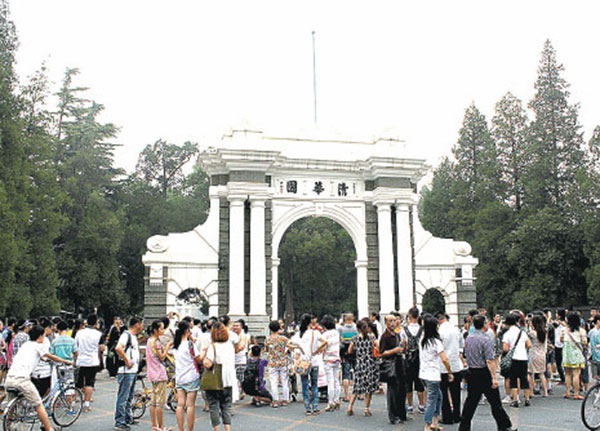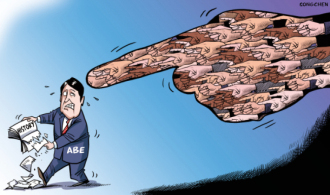University donations must be made transparent
(China Daily) Updated: 2016-01-05 08:35
 |
|
File photo taken on July 2013 shows students, some with their parents, wait to enroll for the new semester at Tsinghua University.[Photo/China Daily] |
Beijing-based Tsinghua University received more than 10 billion yuan ($1.5 billion) by the end of 2015 from donors both at home and abroad. This was the highest amount among all Chinese universities, according to cuaa.net, a website that focuses on alumni affairs. Such donations must be put under public supervision, says Scol.com.cn:
True, private donations from alumni or other third parties are often considered an important measure of a university's quality and reputation. But in Tsinghua's case, it is also necessary to make sure that every penny of the more than 10 billion yuan is put to good use.
That being said, it is more than necessary to question why some business people are willing to donate and whether any money-for-power exchanges are involved.
On the one hand, what the universities do in return for these donations should be closely watched, especially the public universities that are basically funded by governments at all levels.
Unlike local governmental departments, colleges always seem to have good reasons to open their doors to the public donations, such as "for further educational development", without being accused of taking bribes.
On the other hand, it is the less-renowned colleges that receive the least donations and are most in need of the money. The more financial resources the leading universities manage to acquire, the less goes to them.
Of course, for all universities alike, how the private funds go to their accounts must be made perfectly clear and placed under public scrutiny, in a bid to prevent the educational resources from being abused as a return of favor.

Charlotte and Emilie Meaud, twin sisters, were killed at the terrace of the Carillon, during the attacks on Paris, on the 13th of November.










